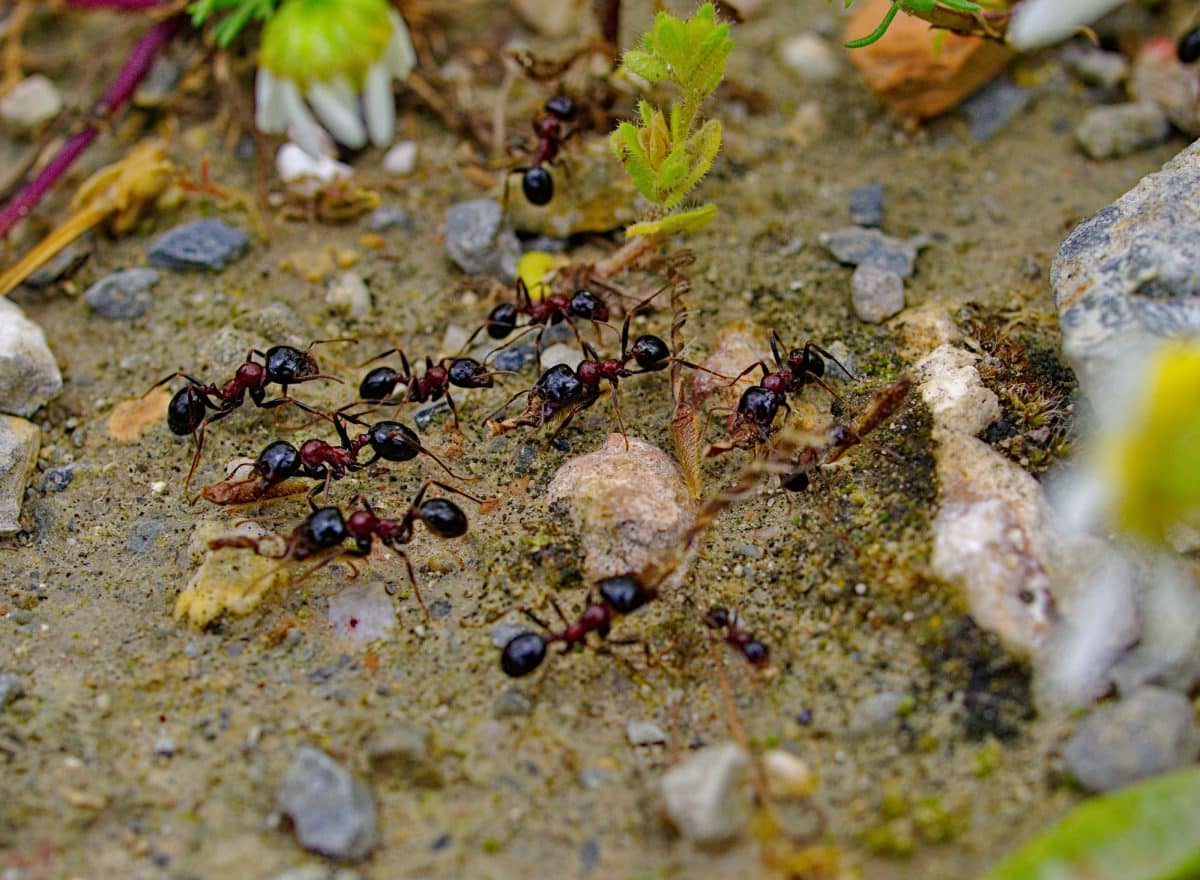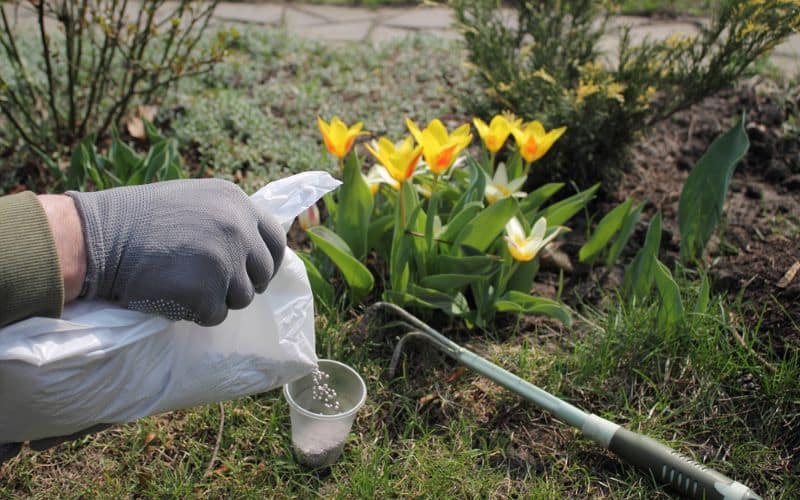
Struggling with an ant invasion in your garden can be frustrating, especially when you’re keen to protect your plants. Fortunately, there are natural, plant-friendly ways to banish these persistent pests from your green space. In this article, you’ll discover how to tackle the ant problem using methods like hot water, cayenne pepper, and diatomaceous earth—effective solutions that won’t harm your beloved flora.
Ants can be beneficial, but when they start to overrun your garden, it’s time for action. You’ll learn why ants are attracted to your garden, how to remove their food sources, and how to create a tidy space that’s less inviting to them. Get ready to reclaim your garden’s harmony without resorting to harsh chemicals. Keep reading to find out how to send ants packing the eco-friendly way.
Understanding the Ant Problem
When you’re faced with ants in your garden, it’s important to know you’re not dealing with a mere nuisance but potentially a symptom of a larger issue. Integrated pest management is key. Ants are drawn to your garden for reasons such as accessible food sources or other pests like aphids.
Identify the Cause: Start by assessing why ants are flocking to your space. Examine your garden closely for:
- Hummingbird feeders or fruits which could be enticing ants
- Clusters of vegetation that provide a rich feeding ground for these insects
Regular Monitoring: Vigilance is crucial in detecting the early signs of infestation and taking swift action to mitigate the problem. Keep an eye out for:
- Small black bugs on plants
- Chewed or eaten leaves
- Trails of ants on the ground
Ants farm aphids for honeydew, a sweet byproduct that can escalate ant populations rapidly. If you spot aphids, remove them immediately. Consider hosing off infested plants daily to discourage ant attendance and protect predatory insects.
Prevention Tips: Finally, reduce ant attractiveness by keeping your garden clean. Remove debris and dead leaves promptly and utilise mulch as a physical barrier to deter ant incursions. Remember, the goal is to create an environment that’s less inviting for ants without harming your plants.
Natural Methods to Get Rid of Ants in the Garden
Maintaining the health of your garden while managing pests requires careful strategy. Here’s how to tackle ant infestations naturally.
Creating Barriers
A physical barrier can be a simple yet effective tool against ants. Diatomaceous earth, a fine powder made from fossilised algae, is harmless to plants but lethal to ants due to its abrasive qualities. Sprinkle it around plants and perimeters where ants are active.
Gravel creates an inhospitable surface for ants. By surrounding your garden beds with a thick layer of gravel, you’ll form a natural barrier that’s low maintenance and long-lasting. This method has dual benefits; it aids in drainage and adds to the aesthetic of your garden space.
Table 1: Benefits of Using Physical Barriers
| Barrier Type | Benefits for the Garden |
|---|---|
| Diatomaceous Earth | Safe for plants, lethal to ants |
| Gravel | Deters ants, improves drainage, adds aesthetic value |
Using Natural Repellents
Natural repellents can provide an environmentally friendly way to keep ants at bay. Essential oils, like peppermint, are known to deter ants. Mix a few drops with water and spray around your garden to keep ants out without damaging your plants.
Cinnamon, with its strong smell, disrupts ant pheromone trails. Sprinkle cinnamon powder around your garden’s edges or use a cinnamon-water spray solution as a dual-purpose natural repellent and fungicide.
Table 2: Natural Repellents and Their Uses
| Repellent | Application Method | Additional Benefits |
|---|---|---|
| Essential Oils | Spray solution | Pleasant scent, plant-safe |
| Cinnamon | Powder or spray solution | Also acts as a natural fungicide |
Removing Ant Trails and Nests
Dealing directly with ant trails and nests will slow down the infestation. Baking soda mixed with powdered sugar creates an effective bait. When laid down along ant trails, the ants carry it back to their nest, disrupting the colony.
Another strategy is regularly disturbing ant nests. Overturning soil around the nest disrupts the ant colony’s structure, prompting them to move away from your garden.
Remember, while tackling the ant trails and nests, take care not to harm the plant roots and foliage within your garden. Your aim is to get rid of ants without causing collateral damage to your green space.
Table 3: Techniques for Removing Ant Trails and Nests
| Technique | Mode of Action | Additional Notes |
|---|---|---|
| Baking Soda Bait | Disrupts the colony when taken back to the nest | Must be remixed and reapplied regularly |
| Disturbing Ant Nests | Encourages relocation of the colony | Avoid damage to plant roots |
Removing ants from your garden enhances the environment for your plants to thrive. By consistently applying these natural methods, you maintain a balanced ecosystem where your plants can flourish without the threat of ant damage.
Organic Pest Control Options
Beneficial Insects
Tapping into nature’s own pest management solutions, you’ll find beneficial insects at the forefront. These allies in the garden ecosystem act as a biological control against ant infestations.
- Ladybirds: Often introduced by gardeners, they control aphids, a common food source for ants, reducing the ants’ food supply.
- Parasitic Nematodes: Release bacteria that tragically end pests within 24-48 hours, making them a mortal foe to ants and various garden pests.
- Lacewings: Their larvae, known as aphid lions, have a voracious appetite for soft-bodied pests, leading to a decline in ant populations reliant on these pests.
Incorporating flowering plants that attract these insects ensures a steady population of these beneficial creatures to maintain ecological balance and deter ants.
Neem Oil
Recognised for its dual effectiveness, Neem oil stands out as a stellar choice for safeguarding your garden against ants. When ants encounter Neem oil, it disrupts their life cycle in two significant ways:
- Respiratory Disruption: Penetrating the breathing holes of ants, Neem oil blocks them, leading to suffocation.
- Hormonal Interference: On absorption, the oil impairs the ants’ hormonal system, resulting in a loss of appetite and disruption of reproductive capabilities.
To apply Neem oil effectively,
- Mix 4 tsp of Neem oil with 1 gallon of water and 2 tsp of liquid dishwashing soap.
- Next, pour this solution into a spray bottle.
- Apply directly to the ants, their trails or nests, ensuring thorough coverage.
With consistent use, Neem oil decreases the ant population without causing harm to your plants.
Diatomaceous Earth
Diatomaceous Earth (DE), a naturally occurring sedimentary rock, poses as a formidable barrier against ants with its microscopic, jagged edges. Here’s why DE is an invaluable tool in organic pest control:
- Physical Deterrent: The abrasive nature of DE damages the exoskeleton of ants, leading to dehydration and death.
- Environmentally Safe: DE is non-toxic and does not contribute to groundwater pollution, unlike synthetic pesticides.
- Easy Application: Simply sprinkle DE around the base of plants or across ant pathways to create a lethal barrier.
While DE provides a potent defence against ant invasions, it’s crucial to ensure the garden stays dry as DE loses effectiveness when wet. Regular reapplication, particularly after rainfall, maintains its deterring properties.
Prevention Measures to Keep Ants Away
Proper Garden Maintenance
Maintaining your garden can significantly reduce the likelihood of an ant infestation. A well-kept lawn is your first line of defense:
- Mow Regularly: Keeping your grass at the optimal height depending on its type discourages ants from settling.
- Water Wisely: Overwatering can attract ants. Provide just the right amount to help plants thrive.
- Fertilize on Schedule: Tailored fertilization keeps your garden robust, deterring ants from invading weak, patchy areas.
Moreover, by promptly removing yard debris such as dead branches, fallen leaves, and decaying logs, you eliminate potential ant havens. If you’re storing woodpiles, placing them in a shed or at a distance from your house is imperative to prevent ants from using them as a bridge into your home.
Cleaning and Sanitizing
A clean environment is less inviting to ants:
- Bin Maintenance: Position compost bins and trash receptacles away from your lawn to keep ants at bay.
- Immediate Cleanup: Dispose of food waste quickly, be it crumbs on your kitchen counter or a dropped snack outdoors.
In cases where pests manage to establish themselves, employ natural repellents; cayenne pepper, citrus peels, and coffee grounds can provide a deterrent effect without adverse impacts on your plants. Always clean areas where food is consumed, as even small food residues can attract a horde of ants.
Companion Planting
Cultivating certain herbs strategically through your garden can work wonders. These plants intrinsically repel ants and can add another layer to your pest prevention strategy:
- Catnip
- Mint
- Pennyroyal
- Tansy
- Wormwood
- Chrysanthemums
Integrating these plants into your garden layout not only deters ants but also contributes to its biodiversity. Remember, while herbal pest deterrent sprays can be effective, they may also dissuade beneficial insects; use them sparingly and discontinue once the ant population is under control.
By employing these preventative measures, you’ll create an environment that’s less attractive to ants. Regularly inspect your garden for early signs of infestations and take action when necessary, be it through physical barriers or the adoption of natural repellent plants. With vigilance and upkeep, your garden can remain ant-free and healthy.
Conclusion
You’ve got the tools at your disposal to tackle an ant invasion without harming your beloved plants. With the right maintenance, cleanliness, and strategic planting, you’re well on your way to an ant-free garden. Remember, consistency is key. Stick to your garden care routine and those pesky ants will soon look elsewhere for their next home. Now’s the time to take control, protect your green space, and enjoy the fruits of your labour in a serene, ant-free environment.
Colin Macmillan is a seasoned entrepreneur and the CEO of Riverwood Landscape, a leading landscaping company based in Canada. He has been at the helm of the company since leaving high school, demonstrating his strong leadership skills and business acumen.
Colin’s expertise lies in various aspects of landscaping, including lawn care, interlocking, sod installation, and commercial maintenance. His hands-on approach and dedication to the craft have been instrumental in building Riverwood Landscape into a reputable brand.
One of his most notable achievements is the creation of a successful landscape franchise that services multiple locations. This accomplishment underscores his strategic thinking and ability to scale operations effectively.
Colin has also had the privilege of working with Guelph Hospital for landscaping and maintenance, a testament to the trust and reliability that his company has earned over the years.
His professional mission is to offer the best services and experiences for customers, a goal that he tirelessly pursues. Colin’s commitment to excellence and customer satisfaction continues to drive the growth and success of Riverwood Landscape.










